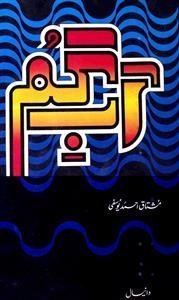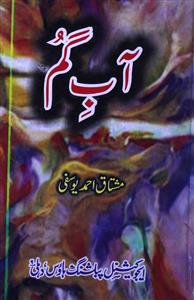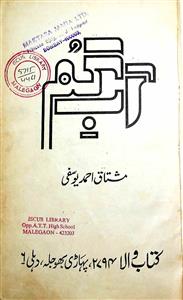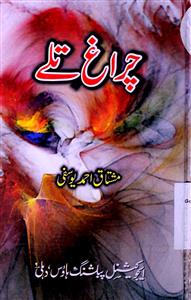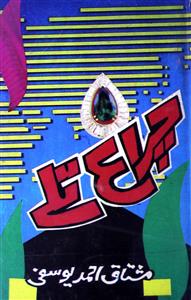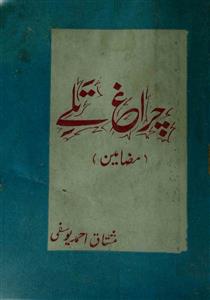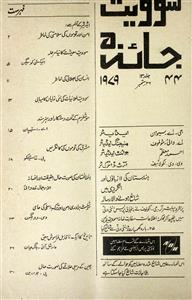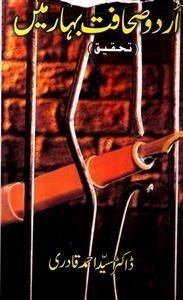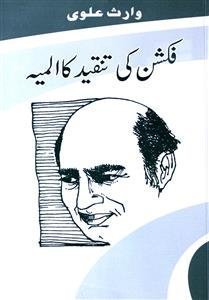 For any query/comment related to this ebook, please contact us at haidar.ali@rekhta.org
For any query/comment related to this ebook, please contact us at haidar.ali@rekhta.org
About The Book
"آب گم" مشتاق احمد یوسفی کا مزاحیہ شاہکار ہے۔ 1989 میں یہ کتاب پہلی بار منظر عام پر آئی۔ اس کے موضوعات بہت زبردست ہیں۔ اس مجموعے کے بیشتر کردار ماضی پرست، ماضی زدہ اور مردم گزیدہ ہیں، ان کا اصل مرض ناسٹلجیا ہے۔ بس ان کرداروں کی نفسیات اور ان کی ماضی پرستی کو سامنے رکھ کر طرح طرح سے مزاح پیدا کیا گیا ہے، کچھ اس طرح کہ یہ کتاب نہ صرف مشتاق احمد یوسفی کا شاہکار ثابت ہوئی بلکہ اردو طنز و مزاح کی مکمل تاریخ کی سب سے اچھی کتابوں میں شمار کی گئی۔ یوسفی صاحب بہت نرالے اسلوب کے مالک ہیں، ڈاکٹر نورالحسن نقوی لکھتے ہیں، "یوسفی کی تحریروں کا مطالعہ کرنے والا پڑھتے پڑھتے سوچنے لگتا ہے اور ہنستے ہنستے اچانک چُپ ہو جاتا ہے۔ اکثر اس کی آنکھیں بھیگ جاتی ہیں۔" اس کتاب میں موجود گدگداتے جملے اور ان کا منفرد لب و لہجہ والا طنز و مزاح کچھ ایسی باتیں ہیں جو اس کتاب کو بار بار پڑھنے پر آمادہ کرتی ہیں۔ یوسفی صاحب ادنی سے ادنی بات کے کسی پہلو یا زاویے پر ہلکی سی روشنی ڈال کر اس کی طرف قاری کو متوجہ کر چونکا دینا اور پھر خود معصومانہ انداز میں آگے بڑھ جانا یوسفی کے فن کی وہ نزاکت ہے جو صرف انہی کے حصے میں آئی ہے۔
About The Author
Humour and satire are important components of communication. Life changing messages can be conveyed through this genre in a very jovial manner. The problem, however, lies in the writers’ involvement in scurrilous sentences which might be offensive. Mushtaq Ahmad Yusufi raised the Urdu humour-writing up to the apogee.
Yusufi was born in a well-educated family of Jaipur (British India). His father Abdul Karim Khan Yusufi was the Speaker of the Jaipur Legislative Assembly. Yusufi earned a B.A. from Agra University before coming to Aligarh. He completedan M.A. in Philosophy and LL.B from Aligarh Muslim University and joined the Indian Civil Service soon after. After partition, his family migrated to Pakistan where he became the chairman of the Banking Commission of Pakistan in the 1970s. He has awarded the Sitara-e-Imtiaz and Hilal-e-Imtiaz, the highest civilian honours conferred by the Government of Pakistan. He also received the ‘Kamal-e-Fun Award’, the highest literary award by Pakistan Academy of Letters in 1999. His famous collections include Charagh Taly, Khaakam Badahan, Aab-E-Gum, and Zarguzasht.
His writings are flooded with Persian and Urdu verses and one can find several quotations from illustrious writers such as William Shakespeare, John Donne, Marcel Proust, Rudyard Kipling and Mark Twain in his works. He also shared anecdotes from ancient China, Greece and even from classical Persian and Arabic literature in his writings. No doubt he was one of the greatest humorists and satirists of modern Urdu. After so many attempts made to translate his work in English, Intizar Husain wrote, ‘Yusufi's work is untranslatable’. Todayfew of his quotations can be seen floating on social networking sites:
‘The problem with rumours in Pakistan is that they often turn out to be true.’
‘There are three kinds of enemies – enemy, mortal enemy, and relatives.’
‘The thing that has made the greatest sacrifice for Islam is goats.’
After a prolonged illness, Yusufi passed away in Karachi on 20 June, 2018, at the age of 94.
 For any query/comment related to this ebook, please contact us at haidar.ali@rekhta.org
For any query/comment related to this ebook, please contact us at haidar.ali@rekhta.org
